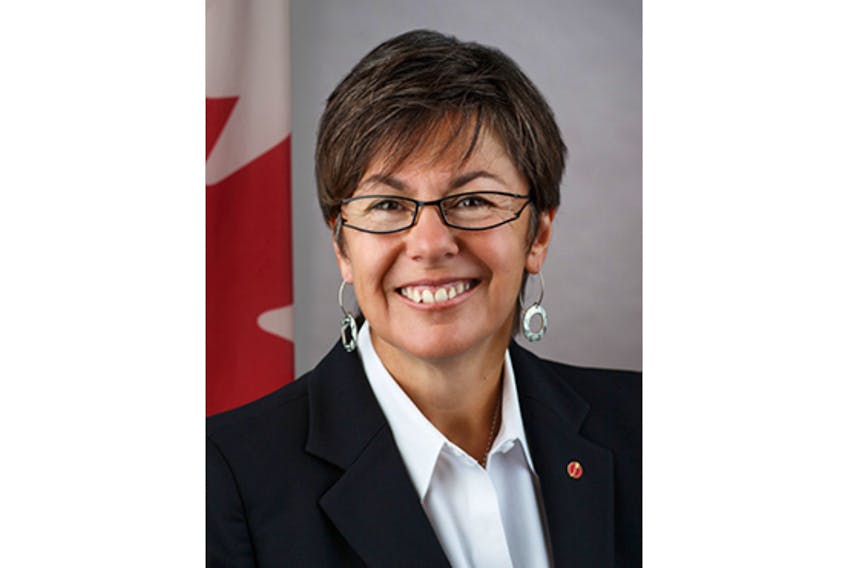Cradled in the reverberating waves of COVID-19, P.E.I.’s special committee on poverty is a beacon of hope to Canadians. At the conclusion of its work, P.E.I. could be poised to lead the way by being the first province or territory to forge a plan to implement a basic income guarantee (BIG) for all whose income falls below an established level.
COVID-19 has spurred a renewed interest in BIG. Now more than ever, most Canadians understand the need for support sufficient for an individual to live in dignity. Despite feeling relatively secure prior to the pandemic, too many are now painfully aware of how precarious seemingly secure jobs and businesses can be and how easy it is to fall through the cracks of current income supports.
I am proud to have roots in P.E.I. and if all goes well, I look forward to returning to O’Leary and Mill River with my father and other family members in July. We would love to include a celebration of P.E.I.’s launch of a basic income initiative. And, we would be cheered on by 49 senate colleagues, umpteen MPs, Indigenous leaders, health-care workers, youth and religious and spiritual leaders.
For those who are scared off by tales of exorbitant costs and the risks of creating communities of layabouts, we urge you to fear not.
In the 1970s, Manitoba’s provincial government launched Mincome, a basic income pilot. During the 1974-79 pilot, work decreased by one per cent for men, three per for married women and five per cent for unmarried women. Most of those who stayed home were young men who remained in high school rather than working to support their families, and parents providing care for their children.
Mincome allowed participants to tend to many needs in ways that are too often uncompensated or very poorly remunerated. Caring for others benefits the economy and the community. Completing education and job training can improve employment prospects. Increased resources allow for better living, eating and recreational options. Good health better equips people to deal with the physical and economic consequences of sudden sickness. The Mincome project resulted in an 8.5 per cent reduction in reliance on the health-care system. As one doctor said, “if we discovered a drug that reduced hospitalizations by 8.5 per cent, we’d put it in the water.”
More recently, 34 per cent of people in Ontario’s 2018-19 basic income pilot reported that the income they received allowed them to “afford to work.” Namely, participants could afford transportation, child care and other necessities for work.
Unlike BIGs, current social assistance schemes trap people in poverty and create disincentives to work. For example, couples receiving social assistance in P.E.I. are allowed to earn only $400 per month before their social assistance payments are clawed back at precipitous rates. In addition, working may affect access to health care, pharmacare and other components of social assistance. In 2018, the Parliamentary Budget Office calculated the cost of a nation-wide BIG similar to Ontario’s pilot program as $76 billion per year. This cost would be offset by longer term savings.
While a BIG would not replace the need for spending on health care, child care, education, housing and other vital social services, it could replace some of the current patch work of federal income supports, reducing the net cost to $44 billion. In addition, such a program could save the provinces and territories an estimated $15 billion in spending on social assistance. By way of comparison, Canada is projecting costs totalling at least $123 billion for COVID-19 emergency response benefits and wage subsidies and there are still too many people falling through the cracks.
A BIG would also alleviate the ravages of poverty that strain policing, health care, criminal legal and emergency shelter systems. The cost of poverty in P.E.I. is estimated to be between $240 million and $320 million per year, or 5-7 per cent of its GDP. A BIG would result not only in long-term savings in these sectors, but in better standards of living and more resilient communities.
A BIG is a wise and affordable investment. In 2019, the federal government’s spending priorities included over $24 billion in tax benefits covering capital gains and dividend-gross ups, 99 per cent of which go to those with high incomes, not average Canadians. We have a choice about how we deal with poverty and inequality. I am confident we can trust P.E.I. to choose wisely.
Sen. Kim Pate is one of the co-authors of a recent letter from 50 senators calling for guaranteed livable income/basic income and has been following the work that is being done on this subject in P.E.I.









